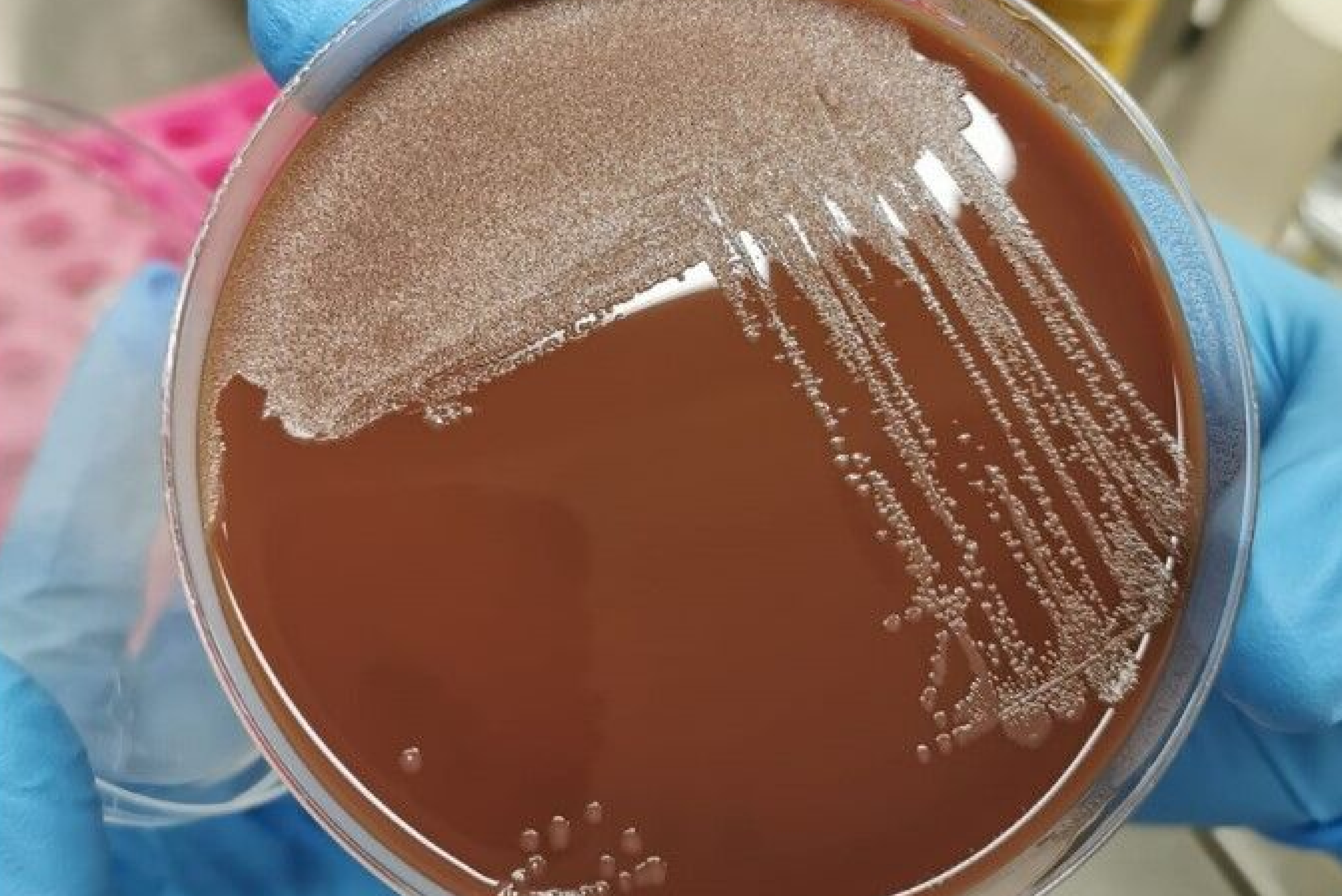04.12.2024
Infections with antibiotic resistant Haemophilus influenzae bacteria
New study highlights challenges in the detection of ampicillin resistant infections with Haemophilus influenzae
In the last decades bacteria of the species Haemophilus influenzae evolved resistance against the broad-spectrum antibiotic ampicillin. A collaboration between the Research Center Borstel, the University of Lübeck, and the H. influenzae Reference Centers in Würzburg and Lisbon correlated mutations in the genomes of the bacteria with resistances against ampicillin and more advanced antibiotics. They discovered mutations and genes with implications for ampicillin resistance and discuss diagnostic challenges and the risk of cross-resistances with other drug classes.
Vaccination against Haemophilus influenzae serotype b bacteria saved the lives of thousands of infants and small children since the 1980s. This bacterium can cause severe diseases such as meningitis and septicemia. In the last decades other strain types, not targeted by the vaccination, became more prevalent and many strains evolved resistances against the antibiotic ampicillin. Often resistance is mediated by well-known and detectable bacterial enzymes that can degrade the antibiotic. However, more challenging is the detection of resistant Haemophilus influenzae strains with mutations in a gene that encodes the target protein of ampicillin. Notably, these mutations often cause moderate phenotypic changes and can confer cross-resistances against other more recently developed antibiotics.
A team of researchers in Germany and Portugal now conducted an analysis of over 1,000 bacterial isolates. In the study published in Genome Medicine, the authors show that routine phenotypic assays and their interpretation often classify bacterial isolates with known resistance conferring mutations as susceptible. “These findings highlight that molecular methods can guide clinicians in case of borderline bacterial phenotypes”, explained one of the first authors Dr. Margo Diricks.
By analyzing the whole genome of these bacteria, the researchers also identified mutation patterns and altered genes, that may contribute to resistance against ampicillin. Prof. Matthias Merker emphasized, that “Understanding the evolutionary trajectories and selection processes helps us anticipate future resistance developments.”
The strong network between the Leibniz Lung Center in Borstel, the University of Lübeck, national and international Reference Centers underscores the importance of monitoring emerging resistance patterns to safeguard the efficacy of available antibiotics.
Reference:
Diricks et al: Revisiting mutational resistance to ampicillin and cefotaxime in Haemophilus influenzae. Genome Medicine, https://genomemedicine.biomedcentral.com/articles/10.1186/s13073-024-01406-4
Contact:
Prof. Matthias Merker and Prof. Inken Wohlers
Research Center Borstel
Leibniz Lung Center
Parkallee 1-40
23845 Borstel
E-Mail:
E-mail:
Kontakt

Prof. Dr. Inken Wohlers
Leiterin der Forschungsgruppe "Data Science in der Lungenforschung"
+49 4537 / 188-6720



